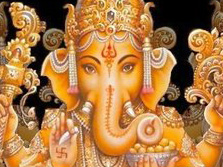Excerpted from Nehru: A Biography with permission of Arcade Books.
A distinctive feature of the Nehruvian legacy was secularism--his visionary rejection of India's assorted bigotries and particularisms. Nehru was, by upbringing and conviction, completely secular. "I have no patience left with the legitimate and illegitimate offspring of religion," Jawaharlal wrote in a letter to his Muslim friend Syed Mahmud in 1927. He was scathing about the superstitions and petty prohibitions that came with religious observance. In a speech to students in Bombay on May 20, 1928, Nehru declared: "Much is said about the superiority of our religion, art, music and philosophy. But what are they today? Your religion has become a thing of the kitchen, as to what you can eat, and what you cannot eat, as to whom you can touch, and whom you cannot touch." Well before partition, Jawaharlal was conscious of the danger that "religion in India will kill that country and its peoples if it is not subdued." After partition, his uncompromising commitment to Indian secularism made him the symbol of security for India's Muslims and other minorities, the assurance that pluralist India would never be reduced to Hindu India. Nehru's distaste for religion in public life was matched by his family's disregard for it in their private lives. Displaced Kashmiris to begin with, the Nehru family tree sports Parsi, Sikh, Italian, and now Indian Christian branches, and its roots are universally seen as uncontaminated by the communal and sectarian prejudices of the Hindi-speaking cowbelt. The one strand of political opinion Nehru and his offspring abhorred was that of Hindu religious revivalism. "The [real] danger to India," Nehru declared bluntly the year before his death, "is Hindu right-wing communalism." Nehru himself was an avowed agnostic, as was his daughter until she discovered the electoral advantages of public piety. All four generations of Nehrus in public life remained secular in outlook and conduct. Their appeal transcended caste, region, and religion, something almost impossible to say of any other leading Indian politician during Nehru's life or afterward.
A distinctive feature of the Nehruvian legacy was secularism--his visionary rejection of India's assorted bigotries and particularisms. Nehru was, by upbringing and conviction, completely secular. "I have no patience left with the legitimate and illegitimate offspring of religion," Jawaharlal wrote in a letter to his Muslim friend Syed Mahmud in 1927. He was scathing about the superstitions and petty prohibitions that came with religious observance. In a speech to students in Bombay on May 20, 1928, Nehru declared: "Much is said about the superiority of our religion, art, music and philosophy. But what are they today? Your religion has become a thing of the kitchen, as to what you can eat, and what you cannot eat, as to whom you can touch, and whom you cannot touch." Well before partition, Jawaharlal was conscious of the danger that "religion in India will kill that country and its peoples if it is not subdued." After partition, his uncompromising commitment to Indian secularism made him the symbol of security for India's Muslims and other minorities, the assurance that pluralist India would never be reduced to Hindu India. Nehru's distaste for religion in public life was matched by his family's disregard for it in their private lives. Displaced Kashmiris to begin with, the Nehru family tree sports Parsi, Sikh, Italian, and now Indian Christian branches, and its roots are universally seen as uncontaminated by the communal and sectarian prejudices of the Hindi-speaking cowbelt. The one strand of political opinion Nehru and his offspring abhorred was that of Hindu religious revivalism. "The [real] danger to India," Nehru declared bluntly the year before his death, "is Hindu right-wing communalism." Nehru himself was an avowed agnostic, as was his daughter until she discovered the electoral advantages of public piety. All four generations of Nehrus in public life remained secular in outlook and conduct. Their appeal transcended caste, region, and religion, something almost impossible to say of any other leading Indian politician during Nehru's life or afterward.
So it is sadly true that the workings of Nehru's democratic system, which remains the best guarantee of Indian pluralism, have served to create and perpetuate India's various particularisms. The Hindu-Muslim divide is merely the most visible, but that within Hinduism, between caste Hindus and the former "Untouchables," and between the upper castes and the lower intermediate castes known as the "backwards," is actually transforming Indian society in ways that Nehru did not anticipate.

